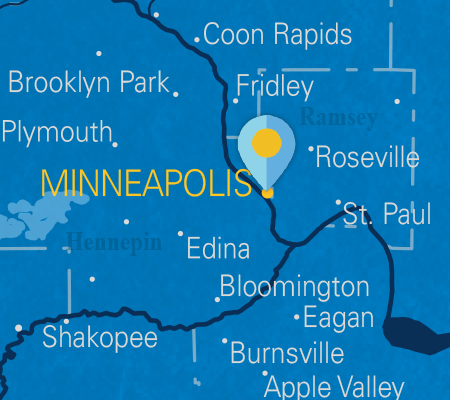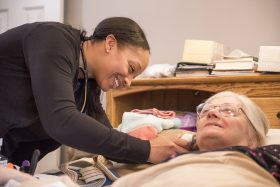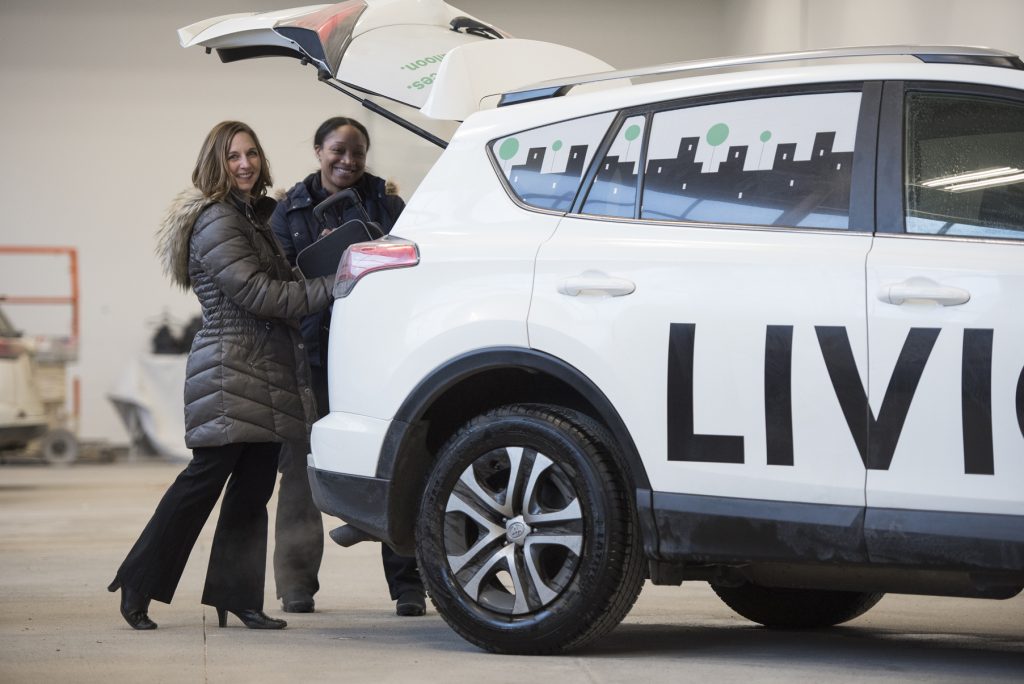
Changing the way health care is delivered through a mobile care model, meeting patients wherever they are
Building a more effective and compassionate health system from the ground up, this health care provider delivers. Literally.

Maureen Vantine, a nurse practitioner with Livio Health, listens during a visit with a patient in their home.
Maureen Vantine became a nurse practitioner to positively change people’s lives. That’s why she enjoys working for Livio so much; she gets to bring care to the patient. She loves that.
As an industry innovator, Livio has changed the way health care is delivered through its mobile health care model, which deploys clinical health teams to meet patients wherever they are. Via a fleet of SUVs, the teams visit patients in homes, treatment centers, community centers and other places where people live, work and congregate — not in traditional clinic settings.
“I see people right in their homes, which helps them feel comfortable and helps me deliver care,” she says. “I think it’s the future of health care, and to me it’s the greatest nurse practitioner job ever.
“When Livio started we thought we would mostly work with the elderly and the disabled —people who have a hard time getting to appointments,” she says. “And while we do work with people in those populations, the organization’s commitment to compassionate patient engagement within a flexible delivery model has allowed it to do so much more – primary care, urgent care, infectious disease management, chemical dependence treatments, and more; all for people who may not have any access to care at all if it weren’t for Livio.”
 Livio was founded in 2015 by just a handful of people; today it has nearly 100 teammates and has helped around 30,000 patients. One area of growth has been in serving people with substance use disorders, where there is increasing demand.
Livio was founded in 2015 by just a handful of people; today it has nearly 100 teammates and has helped around 30,000 patients. One area of growth has been in serving people with substance use disorders, where there is increasing demand.
Dr. Philip Gyura is Livio’s director of addiction care and behavioral health integration. He joined Livio in 2017 after directing a mobile-health program in New York.
“We meet patients where they are, both physically and emotionally,” he says. “We go into their homes. We meet them on the street. We listen. We lower barriers. We find out where they are on their journey and we work with them.”
In 2016, 395 Minnesotans lost their lives to opioids, according to a Pioneer Press report. Vantine and Gyura see people all the time who want to engage in treatment, recovery and health; they just don’t know how to ask for it.
“So many people don’t get treatment because they’re ashamed, which only gets magnified when they go to doctors who aren’t trained in this area,” says Gyura. “People don’t need to hide in a corner because of an addiction. They don’t deserve that. That doesn’t help.”
We want to provide as many options as possible so patients can thrive over the long term,” adds Gyura. “Whether that means continuing to see us or being referred to a different system of care, we believe in a fluid approach. We just want to find what works.”
Experience shows that the flexible approach is effective particularly in its ability to help patients manage complex health conditions and even reduce unnecessary visits to the emergency room. Going forward, Livio is considering a number of expansions to its mobile care services.
“We know this is the best way to help people,” says Vantine. “And it’s incredibly rewarding.”

Livio delivers the care patients need face to face while building a relationship to help them get around obstacles that stand in their way.
